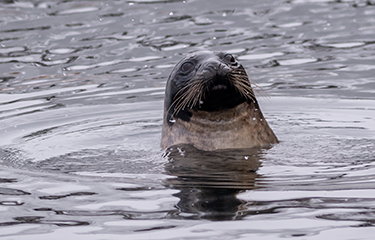Canada is considering culling large seal herds that fishermen have blamed for declines in cod stocks – but commercial fishing organizations are urging caution.
Fishermen in the Canadian Maritimes have blamed large populations of seal – which regularly prey on commercial fish species – for some of the declines in cod populations. The Fish Food and Allied Workers Union (FFAW-Unifor), representing 15,000 members in Newfoundland and Labrador, has long called for seal-culling to be a part of any species-rebuilding plans.
“We cannot have a balanced ecosystem if one species is allowed to spiral out of control,” FFAW-Unifor Secretary-Treasurer Jason Spingle said in a November 2022 statement.
The fishermen’s union applauded efforts in November by Canada Minister of Fisheries, Oceans, Canadian Coast Guard Joyce Murray to lead on completed what she called “much-needed science work” on the impacts of seals on fishing stocks.
“The ramifications natural mortality from seals is having on important fish stocks, predominantly the three cod stocks and the capelin stock adjacent to Newfoundland and Labrador, need to be better understood,” Spingle said.
The calls for a cull have led to Canada’s government to consider just that, CBC reported – but some officials are warning that doing so could have widespread negative impacts on the fishery.
Culling seals, Fisheries Council of Canada President Paul Lansbergen told Canadian MPs, could lead to important markets closing their doors to Canadian seafood.
"It is immensely important that as the government considers potential steps moving forward, its actions do not disrupt either the market access or acceptance of Canadian fish and seafood products, both internationally and domestically," Lansbergen said.
One key U.S. law, the Marine Mammal Protection Act (MMPA), has specific rules requiring the treatment of all marine mammals – and countries that want to send seafood into the market need to follow those rules.
In 2019, members of the U.S. Senate called for NOAA to use its authority under the MMPA to prohibit imports from Canadian fisheries if they didn’t do more to protect critically endangered North Atlantic right whales.
Lansbergen said public reaction should also be considered in any decision on seal-culling.
"In terms of market acceptance, some importers and domestic buyers do not want to be linked with companies and or countries associated with the sealing industry, so there must be extreme caution by the government, so as to not jeopardize existing customers for Canadian seafood companies of our efficiency for products," he said.
One solution to the problem of seal overabundance has been presented by Bait Masters, a company based in Prince Edward Island, Canada. It has been adding seal meat to its bait sausages, CBC reported. Bait Masters Co-Owner Mark Prevost called the bait sausages – commonly used in lobster traps and crab pots – the “Cadillac” of baits.
"I think it's the oil, the seal oil as an attraction, and possibly the meat itself. I think it lasts a little bit longer, especially with the warmer waters,” he said.
Prevost said he isn’t worried about pushback on the use of seals in bait.
"I don't worry about that. I know what we're doing is responsible," he told the CBC. "I understand there are concerns, but now that I know the industry better than I did before, I'm not too worried about it."
Photo courtesy of Dolores M. Harvey/Shutterstock







